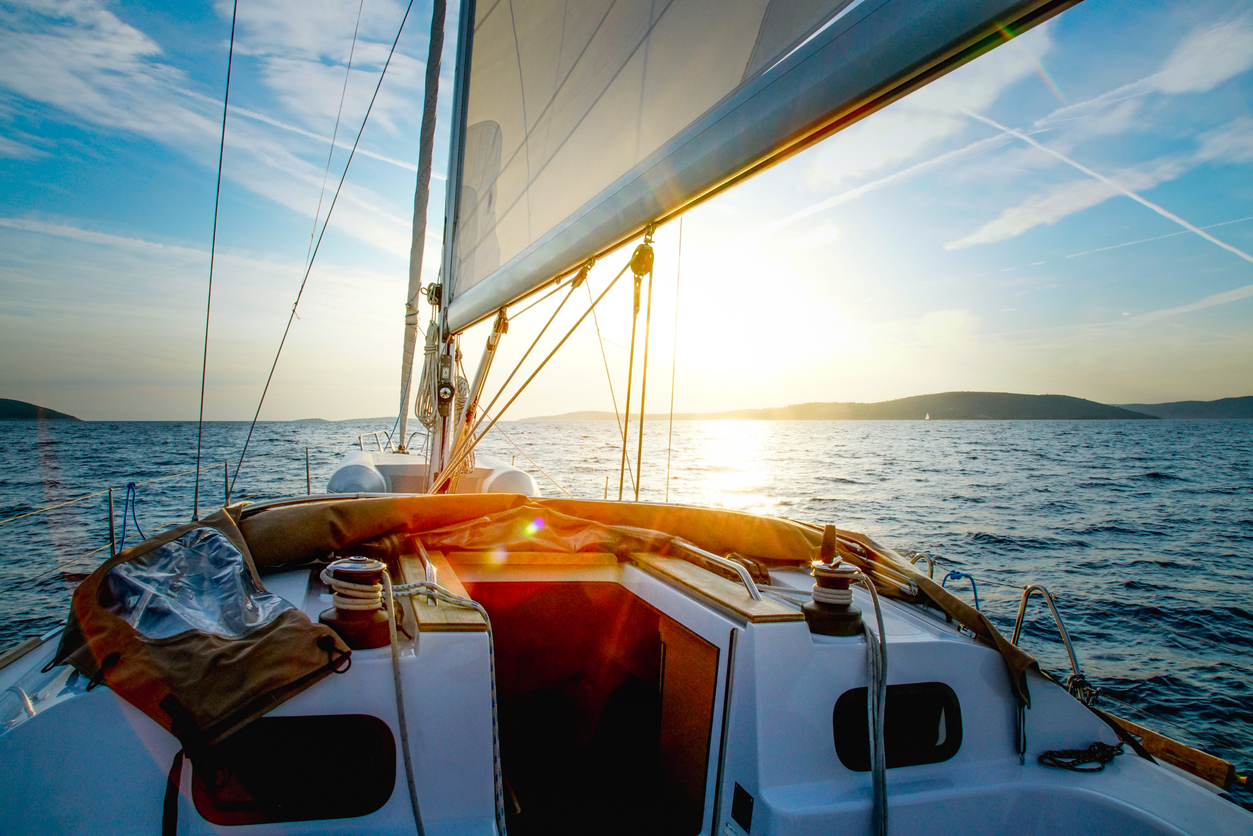
Boating offers a thrill unlike anything else. Yet, boating safety is not taken as seriously as it should be when far too many individuals are killed and injured from boating accidents. The majority of these incidents can be avoided with just a few simple precautions. So you can continue having fun, keep these boating rules in mind and ensure you carry current boat insurance.
Never Drink and Boat
Drinking and boating can be just as dangerous as drinking and driving and can lead to significant legal consequences as it is the cause of many recreational boating fatalities. Operating a boat under the influence of alcohol (BUI) is illegal in every state since alcohol can even be more dangerous on the water than on land. With the wide range of impairment factors such as the waves, engine noise, sun, and wind, just to name a few, the effects of alcohol are exaggerated. Physical effects of drinking and boating include but are not limited to lower cognitive abilities and judgment and impaired balance, coordination, vision, and response time.
Remembering boating safety is paramount during the summer, especially during holidays when there is more of a risk factor for drunk boaters.
Life Jacket Importance and Usage
Life jackets save so many lives. Typically boating accidents are a surprise, which is why it is so important to have your life jackets on. The U.S. Coast Guard requires boats to have accessible life jackets that meet safety standards, in good serviceable condition, and of an appropriate size for the individual it is servicing. Children need specially-sized life jackets that are appropriate for their weight range and fit snugly so they can not slip through. Float testing can determine the fit and buoyancy of the life jacket. It is also wise to always wear life jackets for certain activities such as water skiing or any towed activity. Test your life jackets at least once each year to throw out the ones that have become worn out or have lost their buoyancy.
Be Prepared
Before you go out on the boat, you must take a few precautions to keep the outings safe and legal. Have a thorough knowledge and comply with the state’s boating laws in your state. Taking a boating safety course is always a smart idea, and you might even be able to find one for free. You can also have the Coast Guard perform a free Vessel Safety Check on your boat. Create or review your float plan, which should include where you’re going, who is going with you, and when you plan to return. It is wise to email this to someone responsible for starting the search and rescue process if need be.
Before you board the boat, check that you have a full tank of gas, correct oil and fluid levels as well as a fully charged battery. Examine all components of your boat to make sure they are in good working condition. Along with life jackets, have all the boat safety equipment onboard, such as a fire extinguisher, boat lights, extra batteries, and a floating pouch with maps, flares, and a first aid kit. Keep in mind that you should never go out on the water without first checking the local and destination forecast, as weather conditions can change rapidly. Use a radio to keep an eye out for inclement weather. If the weather is not looking safe out on the water, get out as soon as possible.
It is crucial to know what to do if someone goes overboard. Immediately turn off the motor and propellers. If everyone has gone overboard and the motor or propellers are still on, get everyone away from the boat as quickly as possible. Try to remain calm so you can use better judgment and check to make sure those overboard have a lifejacket, and if they do not, give them any floating safety device as soon as possible.
Boat Propeller Safety
Boat propellers can easily cause serious injury to anyone in the water. You can help avoid these injuries by ensuring all of your passengers are accounted for in the boat before starting the engine and check that no one is in the water near the boat by doing a walk around.
No one should sit in an area of the boat from which they could fall near the propellers. If anyone does fall overboard, stop the boat immediately and keep the person in sight and keep your engine off until the individual is safely on board. Never enter swimming zones and be extremely careful around boats that are towing water skiers. Consider using a propeller guard if applicable for your boat.
Be Courteous to Others
All boaters must remain mindful of other boaters and swimmers by keeping a safe distance. Boating rules established by the local authorities or property owners are posted for a good reason, so always be sure to follow those.
It is good manners and just good boating safety to keep your wake low when near other boats, swimmers, or the shore.
About Provident Protection Plus Insurance Agency
At Provident Protection Plus, we have served the businesses and residents of New Jersey, New York, and Pennsylvania for more than 65 years. We are a wholly-owned subsidiary of Provident Bank, the region’s premier banking institution, and we are prepared to offer you personal, business, employee benefits, and risk management solutions. To learn more about our coverage options, contact our specialists today at (888) 990-0526.



